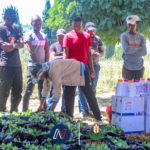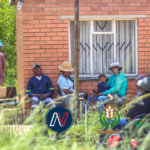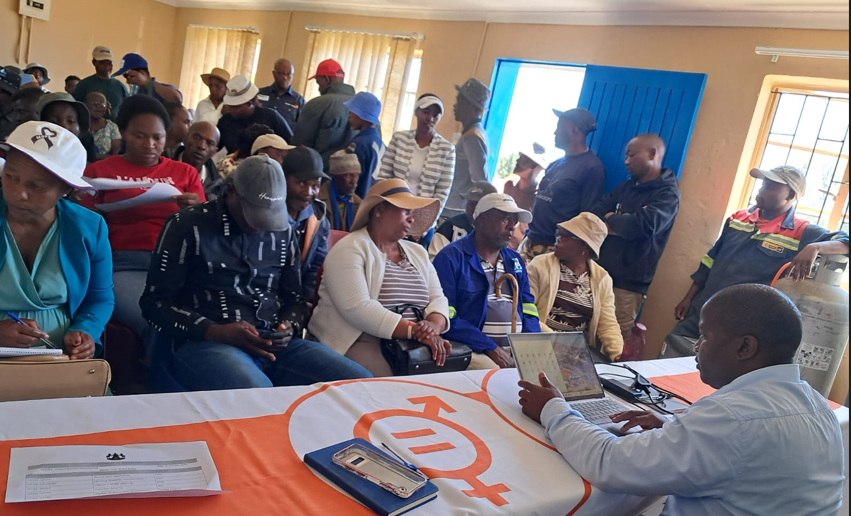Farmers, entrepreneurs and agribusiness partners recently came together for a roundtable discussion under the theme, “Market Before Production”, calling for a shift from traditional farming toward a more coordinated and demand-driven approach.
The discussion, facilitated by the district’s Department of Marketing with the support from the Smallholder Agricultural Development Project (SADP II), gathered crop producers from Butha-Buthe, Leribe and Mokhotlong alongside entrepreneurs and agricultural Extension Officers.
The aim was simple yet transformative, to ensure that what farmers grow aligns with what the market truly needs.
Opening the session, Matee Limo from the Butha-Buthe marketing office, said the purpose of the meeting was to reconnect the agricultural value chain.
“We called everyone together to maintain a strong chain where farmers, extension officers and entrepreneurs support one another,” he explained.
He added, “Farmers must produce with guidance from extension officers, while the market buys what the farmers grow. Meeting face-to-face helps us strengthen these partnerships and build a market that benefits everyone.”
The introductions that followed painted a vivid picture of agricultural diversity in the highlands, from cabbage and potatoes to onions, carrots, beetroot, tomatoes, and peppers.
Yet behind this abundance lies a common challenge: most farmers produce without knowing the market’s demand or quality standards.
This, Limo said is what must change.
“We can’t afford to plant first and ask who will buy later. Market understanding should guide production decisions if we want to stabilise food security and improve incomes,” he stressed.
Among the entrepreneurs who addressed the farmers were representatives from six local agribusinesses.
Their message was unanimous, quality, quantity and consistency remain the biggest gaps between producers and buyers.
“Basotho farmers are capable, but their production is often inconsistent and poorly packaged,” one shop owner noted.
“Because of that, many of us end up sourcing from South Africa. We want to change that, but it requires farmers to take market needs seriously.”
Mahasela Nkoko, representing the Northern Agric Hub, said the hub acts as the middle link between farmers and retailers.
“As a market centre, we align farmer production with what the market needs,” Nkoko explained, saying they buy from farmers, package the produce, barcode it and supply it to retailers.
“…But that process only works when farmers meet standards.”
Nkoko also revealed that the hub has conducted research on seed varieties that yield longer-lasting, high-quality produce suited for long shelf life.
“We are planning another meeting with government and farmers to share details of climate-resilient seed types that last longer on shelves without decaying,” he said.
He further introduced plans for contract farming arrangements, noting that the hub would classify producers into four categories based on farm size and production capacity to ensure stable supply chains.
“Farmers must also learn to price their goods fairly. Let’s align prices to market standards so everyone in the chain benefits,” he emphasised.
Closing the meeting, Vuka Tsabo, the Horizontal Alliance Officer with the SADP II revealed that demand within Butha-Buthe alone is enough to sustain hundreds of local farmers if they can produce in time and at an upscale.
“Every week, Butha-Buthe’s shops use about 9,700 bags of cabbage and 1,155 boxes of tomatoes, add peppers, onions, potatoes, carrots, and beetroot, these seven crops alone could secure the district’s food supply and boost our economy if farmers respond to this demand,” he shared.








